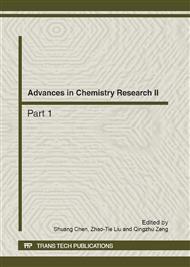p.399
p.404
p.408
p.414
p.420
p.425
p.430
p.436
p.440
Influence of the Addition of Depressants during Grinding on Lead-Zinc Separation
Abstract:
The flotation performance of a complex lead and zinc ore were investigated by changing the grinding environments. Four groups of testing were conducted with different depressants or their combinations. Flotation results, size-by-size analysis, pulp potential (Eh) and dissolved oxygen (D0) were studied. It was found that the addition of depressants during grinding was beneficial to increasing the separation efficiency.
Info:
Periodical:
Pages:
420-424
Citation:
Online since:
July 2012
Authors:
Keywords:
Price:
Сopyright:
© 2012 Trans Tech Publications Ltd. All Rights Reserved
Share:
Citation:


